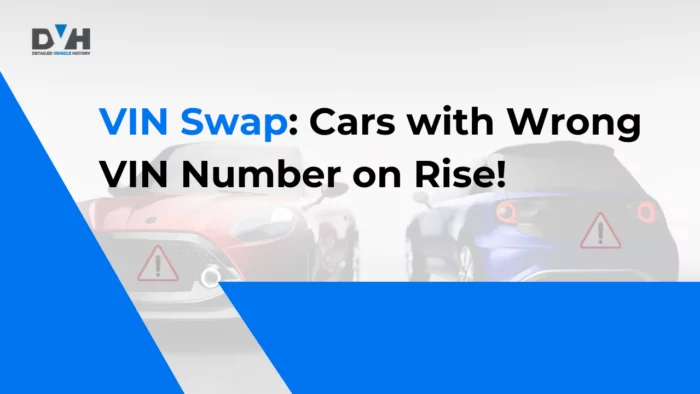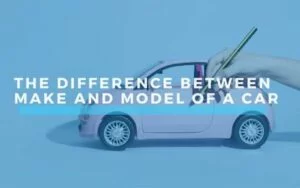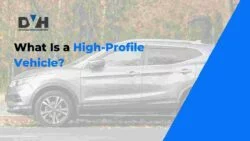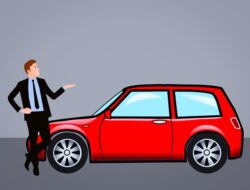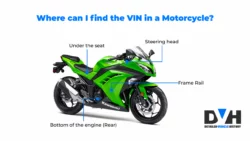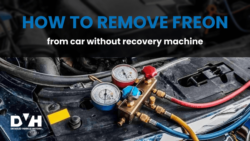The flip side to peace of mind in used car transactions is the issue of VIN swapping and buying a car with false authenticity.
VIN swapping is a form of car cloning that involves replacing the Vehicle Identification Number (VIN). This means that end users can easily purchase stolen or unsafe vehicles without being aware that they are being scammed.
That is why it is crucial for potential car buyer out there to learn what VIN number swapping is all about and how to avoid the situation.
READ ALSO: Odometer Rollback: Detecting and Avoiding this Costly Scam
What is a VIN Swap?
VIN swapping or VIN cloning refers to an action where the VIN tag from one car is mechanically placed on another, which is usually done with a negative intent.
VIN is a unique alphanumeric code, inscribed on the vehicle, which includes crucial data about the manufacturer, model, engine, transmission and other information about the vehicle.
When VINs are swapped, they take the VIN belonging to a legal car and transfer it to another vehicle – typically stolen or salvaged – giving a new identity to the stolen car.
This enables the ownership transfer of the car with genuine-looking documents. When that happens, the unsuspecting buyer gets the short end of the stick by getting an illegitimate car while being completely unaware that it was previously junked or stolen.
When Does VIN Swap Happen?
VIN replacement is possible in different situations, and it may be legal or illicit. Here are the circumstances that call for VIN swaps:
- Restoring Classic Cars: When restoring classic vehicles, the original VIN might be missing or damaged. Some restorers swap VINs to restore authenticity.
- Disguising Stolen Vehicles: Criminals steal vehicles and swap their VINs to mask their true identity, making it harder for authorities to check stolen cars.
- Avoiding Salvage Title Status: Fraudsters may swap VINs to remove the “salvage” or “rebuilt” title from a vehicle, which signifies it was previously deemed a total loss.
- Fraudulent Car Sales: Dishonest sellers might use VIN swapping to hide major damage, such as flooding or serious accidents, from unsuspecting buyers.
- Illegal Imports: Vehicles imported illegally may have their VINs swapped to make them appear as domestic or legal imports.
READ ALSO: Branded Title on a Car: Meaning, Pros, & Cons Explained
Legal Implications of VIN Swapping
Modifying or changing a VIN is a major offense that carries severe legal repercussions across the nations of the world, especially in the United States.
Federal and State Laws
According to the law in most countries particularly in the United States, car VIN swapping is prohibited by either federal or state law. The National Highway Traffic Safety Administration (NHTSA) regulates VIN use to the extent that modifying or even scratching out a VIN is unlawful under federal law.
Further, each of these states has different rules regarding VIN alteration but virtually any of them consider VIN fraud as felonious. A VIN can only be changed under certain conditions when the car is restored, and this can only be done through a legal process accompanied with legal paperwork approved by the state DMV.
Potential Penalties
The consequences that car owners face for VIN swapping practices tend to be quite stiff and involve massive fines as well as chances of being imprisoned. In most cases, when people have been caught in the act of swapping VINs, the following consequences may be expected:
- Fines: Offenders are subject to a fine of thousands of dollars at most based on the severity of the fraud or the region of the crime.
- Imprisonment: This activity attracts imprisonment for several years and exact penalties depend on the state laws and the scale of the crime.
- Vehicle Forfeiture: The vehicle with a swapped VIN is usually impounded by the police in the course of investigation and hence leads to its forfeiture.
- Additional Penalties: Sometimes a culprit may be subjected to civil actions by victims who had bought VIN swapped cars which comes with more legal problems.
Red Flags: How to Spot a VIN Swapped Car
It is important to identify a VIN swap before making a purchase so as to avoid getting into legal and financial problems.
Signs of Tampering
Being able to observe some of the features of VIN tampering is one of the ways to avoid getting involved with fake vehicles. You should look for the following warning signs:
- Mismatched Rivets: Genuine VIN plates are usually secured with special rivets. If these look tampered with, it could indicate foul play.
- Scratched-off Paint: You should pay attention to areas around the VIN plate as scratches or repainting around the VIN location can be a sign of a VIN tampering.
- Inconsistent Documentation: The unmatching of the VINs on the vehicle and the documentation can be a sign of a potential VIN swap. During a physical inspection, you should verify the uniformity of the VINs in all the areas where it’s stamped like on the dash behind the windshield, the chassis of the car, driver’s side door jamb etc.
READ ALSO: How to Find Out If Your Car Was Towed or Stolen
Using Vehicle History Reports
VIN databases also come in handy in establishing cases of VIN mismatches, keeping records of the vehicle history.
Through the use of a VIN check tool from reliable sources such as Detailed Vehicle History, Carfax or AutoCheck, you can track the history of a vehicle to verify vital records such as title transfer, accidents or even theft among others.
If the car’s VIN has been swapped, there is usually a lack of synchronization between history and the actual physical state of the vehicle.
What to Do if You Suspect a VIN Number Swap
If you notice that the car you are buying has the VIN swapped, you should avoid getting into such illegal activities because you may end up being involved in car scams.
Contact Authorities
If you have a feeling that a vehicle’s VIN has been switched, inform the local police or the state DMV as soon as possible. Make sure to provide all details about the car and the current documents available, also any incidents of attempts to tamper were observed. Law enforcement can make other investigations to establish whether or not the VIN has been swapped.
Avoiding VIN-Swapped Vehicles
To prevent purchasing a VIN-swapped vehicle, follow these tips:
- Buy from Reputable Dealers: Purchase vehicles from established, well-reviewed dealerships to reduce the risk of fraud.
- Inspect the Vehicle’s History: Always request a detailed vehicle history report and compare the VIN on the car with the documentation provided.
- Perform a Thorough Inspection: Hire a trusted mechanic to inspect the vehicle before making a purchase, especially in private sales.
Legitimate Uses of VIN Swaps
Nevertheless, it is important to know that VIN swapping is normally prohibited but there are some legal causes for swapping or changing a VIN.
Restoration Projects
The original VIN in case of restoration of a classic car may be lost, scratched or even destroyed completely. In such situations, the holders of vehicles might swap the VINs for the purpose of getting a more original restoration of the vehicle, although this must only be done according to the laws.
Legal Documentation and Approval
If you want to engage in VIN swap legally, you must get proper documentation as well as permission from the DMV (Department of Motor Vehicles) or another regulatory body.
Some of the procedures that are involved in the process include presenting proof that the car has undergone the restoration process, provide a viable proof of the damaged or missing VIN and other relevant information that would help to confirm that the swap is legitimate and not a case of fraud.
Conclusion
In the automotive world, VIN swapping creates legal and financial problems not only for the car owners but also for potential buyers. Since it involves engagement in malicious purposes such as changing the car’s identity to evade detection of theft or covering a damage done, VIN swaps have serious consequences which include fine and confiscation of the car.
If you’re vigilant, do proper inspection, and conduct a vehicle history check, you can protect yourself from purchasing a VIN swapped vehicle and get involved in illegitimate activities.

